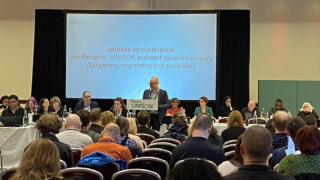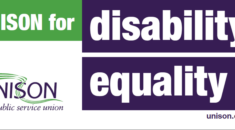Throughout history, the contributions of Black people have been overlooked and ignored. But Black History Month and UNISON’s Year of Black Workers are all about getting Black people’s achievements recognised and appreciated all year round.
Key Black figures have been at the forefront of fighting for social justice and equal rights in the UK. They’ve been instrumental in developing Britain’s culture, art and society as we know it now.
During this year’s Black History Month, we’ve been celebrating their achievements, but particularly those of Black women, as community builders, trade unionists, change makers and trailblazing political influencers. Like Olive Morris, a 1960s and 1970s south London community activist who fought for Black women’s rights and organised others to oppose inequalities.
The trade union movement – and UNISON – wouldn’t be the same without Black members. UNISON has over 185,000 of them and hundreds of Black staff, and some of them have made history.
May Parsons, an NHS matron, administered the first NHS Covid-19 vaccine to 90-year-old Maggie Keenan. This year, May was recognised as one of the most influential Black women in health by the HSJ magazine, along with our deputy head of health Helga Pile.
I’ve spoken many times during UNISON’s Year of Black Workers about the 75th anniversary of Empire Windrush, and the 75th birthday of our NHS. If that ship had never docked in Tilbury, we wouldn’t have our NHS today. New migrants from the Caribbean helped to build our NHS, and the struggles they’ve faced since then will never be forgotten by UNISON. We’re committed to our legal action against the government’s decision to renege on actions that would give justice to victims of the Windrush scandal and prevent another similar scandal from happening again.
But there is still a lot of work to do. NHS workforce data shows that Black workers are still underrepresented in senior roles, and many experience harassment and bullying from the patients. Black women are often disadvantaged in the workplace and ethnicity pay gaps still persist, meaning Black workers are not getting the pay and recognition they’re owed.
We will continue to use UNISON’s Year of Black Workers to establish a legacy to generate change, and build on our campaigns to push for more change in UNISON, in society and through government – at the next general election and beyond.
Because, as the biggest and best trade union in the UK, we take our responsibility in challenging racist policies and championing anti-racist campaigns seriously. We know that, together, we can make the UK a place where Black people are never left underrepresented, undervalued or underpaid.






